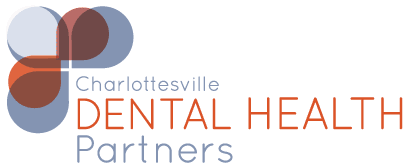Is that Drink Hurting Your Teeth
It is widely believed that one gets cavities because of sugar. While that is a easy thing to point to, especially when talking with children, it is an oversimplification. Sugar and fermentable carbohydrates are simply a catalyst for tooth decay. While it is a great idea to minimize exposure to sugar in one’s diet, that is not the holy grail to prevent dental caries (cavities).
To take it one step furthermore, I know some patients whom have had issues with cavities even though they have a diet low in sugar. Something else must be occurring that allows teeth to decay. That “something” is high school chemistry, the pH scale to be precise. The outside layer of the tooth is enamel, which is predominately a mineral. As such, the enamel is incredibly hard. However, it will dissolve with a strong enough acid (pH 5.5 or below). This process is called erosion. Lets explore the pH of many things that we consume.
As it is popular to do, lets first tackle the problem of soft drinks. Pepsi has a pH of 2.37; Classic Coke, not to be outdone, has a pH of 2.35. Confounding the problem with these beverages are the sugars that they contain. Certain bacteria in one’s mouth will metabolize the sugar and release acid, thus keeping the pH of the mouth low for a sustained time. So, one should switch to diet beverages, right. Well, the pH of Coke Zero is 2.96 and the Pepsi Diet is 3.02. Both of those beverages will dissolve teeth.
What about juices? Categorically, juices are acidic; most have citric acid, which is a fairly strong acid. Lemon juice is the worst, with a pH of 2. However, cranberry, grape, and orange juices are understood to be acidic. In a recent study, the only orange juice with a pH above 4.0 was Tropicana Orange Juice with Calcium (4.09). Most juices also have sugar, which then keeps the mouth acidic for a sustained time. If one must drink juice, then look to tomato juice products, their pH is between 4 and 5.
Another popular morning drink (and one could argue an essential for life) is coffee and/or tea. Our obsession with coffee has been good in the battle of tooth decay. Plain, dark coffee has a pH of 5.5 and above. Now, adding sugar and sweeteners obviously is not great, but some people love their Pumpkin Spice Lattes. Tea on the other hand has a pH usually around 2.7.
What about sport drinks and water? Well, the news isn’t much better here. The new craze is carbonated waters such as Bubly and S. Pellengino which have pH’s between 3 and 4. Flavored waters such as Dasani Grape have a similar pH. Gatorade and Powerade (regular and sugar free) have a pH that hover between 2-4. All of these drinks, while conceivably refreshing, cause tooth erosion. The best choice is water. Bottled water tends to have a pH of around 5-6 where as most municipal water supplies are between 6.5-7.
So, now that we have eliminated all beverages other than water and coffee, we can go on with life right? In reality, there is nothing wrong (from a tooth standpoint) in the occasional soda, green tea, or Gatorade. The key is in the manner which one drinks it. If one knows they are consuming a beverage that is acidic, drink it relatively quickly (about 10-15 minutes). After drinking it, do not immediately brush. The teeth will be weaker from the acid insult. Instead, chew a piece of sugar free gum to stimulate the natural saliva flow. This will neutralize the acid faster and help protect your teeth. Of course, all other considerations aside, choose sugar free beverages as these beverages do not cause a more acidic environment over time. So, next time you are thirsty, consider the pH of the wine you are about to drink (3-4) and after that first glass, drink some water.
